High quality micronised flaked oats for horses that need a little more digestible energy, protein or calories in their diets. These oats are highly palatable and a great energy feed. Many horses are fed diets designed to limit starch and sugar intake.
This is necessary to control insulin levels and manage laminitis but sometimes this can backfire if the horse is in regular work and glycogen stores drop.
Fed within a short time frame immediately after work, these oats are easily digested to glucose to replace glycogen. Combined with beet pulp, which is fermented to acetate and more slowly released they improve energy functions, freeing up glucose for glycogen.
How can feeding oats benefit my horse?
- where a low sugar and starch diet may not be able to keep up with glycogen losses lowered by work and needing to be replenished
- where timed feedings are used to get the maximum benefit from a higher carbohydrate meal and avoid aggravating insulin resistance
- tempting fussy eaters
- adding valuable phosphorous into the daily diet
- adding a higher protein, higher calorie feed source into the diet
What oat products are available?
- Porridge oats: These are also known as the groats. The most intact and complete form of oat available from their natural form. We micronise these to retrain their full nutritional benefit. They are easily digestible, you don’t need to soak them, making them the most convenient and nutritious choice.
- Oat bran: This is the outer layer of traditional oats, which sits just beneath the inedible husk. These are usually leftover once the internal groat has been removed after processing. The brain contains beta-glucans but the groat is missing.
- Oat feed: This would be a processed form of the outer, inedible husks of traditional oats. It will contain beta-glucans but again will not include the inner groat.
- Rolled oats: This is a rougher process, which involves removing the husk and rolling the oat. This makes them slightly more digestible, they are then steamed which in turn reduces the nutrition, damaging beta-glucans.
Should I feed oats to my horse?
- Young horses: feeding oats will provide your young horse with additional protein for muscle growth, extra calories and is a good digestible feed. Oats will also boost phosphorus levels in the diet. Oats can be added daily to your young horse’s regular feeds.
- Adult horses: you should feed oats to adults that are in moderate to heavy work. This will again provide extra protein for muscle support, a good source of energy, additional calories and boost phosphorus levels. Oats can be used to introduce or balance the phosphorus ratio. Oats can be added daily to the regular feeds.
- Older / Veteran horses: Adding oats to your elderly horse’s diet is good for providing extra protein and maintaining weight throughout the year and a great general fuel source. You can feed oats every day as long as they are not laminitis prone.
- Good Doer / Laminitis Prone: Porridge oats have a low glycaemic index compared to other forms of cereal carbohydrates. Horses with active laminitis would NOT be recommended to eat porridge oats. A recovered horse, with a history of laminitis, with low insulin levels and in full exercise is okay to have small portions of oats, mixed with a fibre feed such as beet pulp, immediately after work. Large portions of oats are not recommended.
Why should I feed micronised oats?
There are some key benefits to micronising oats. We provide micronised quality oats so we don’t lose any nutritional value or any of the trace elements during the cooking process. Micronising uses infrared light to gently cook the oat, maintaining maximum nutrition and protecting the oil content for healthy absorption.
It is important that no sudden changes of the diet are made. Oats should be introduced slowly into the diet over a period of at least a week.
Nutritional Information
Feed analysis Dry matter %, 91.4 Protein %, 12.5 Oil %, 11.2 Fibre %, 1.75 Ash %, 1.9%.
Macro Minerals (%) Phosphorous 0.46, Magnesium 0.13, Calcium 0.07, Sodium 0.01, Potassium 0.47, Chloride 0.08.
Micro Minerals (mg/kg) Manganese 55.5, Copper 4.6, Zinc 27.6, Selenium 0.15, Iodine 0.12, Iron 61.
The major fuels for muscle work are fat and glucose, with branched-chain amino acids also contributing. The fat for muscle work is liberated from fat deposits throughout the body and there is never a shortage.
Glucose is taken from the blood but primarily from glucose stored in the muscle as glycogen. Glycogen in the liver is also used to keep blood glucose normal. Glycogen stores are limited so this is the fuel with the potential to limit work. Fat cannot be used to replace glucose. There is always a baseline requirement.
Glycogen stores are lowered by work and need to be replenished. The very low sugar and starch diet may not be able to keep up with losses. Timed feedings can get the maximum benefit from a higher carbohydrate meal and also avoid aggravating insulin resistance.
Feed 1 to 1.5 lbs of beet pulp (dry weight) with 1 to 1.5 pounds of plain oats within the first hour after work is finished. There is a window after exercise where muscle takes up glucose very readily. Even insulin resistant horses can receive extra carbohydrates in that time frame.
The oats are easily digested to glucose to begin replacing glycogen. The beet pulp is fermented to acetate which is more slowly released and can be used instead of glucose for energy functions, freeing up glucose for glycogen.
Studies have confirmed acetate supports the glycogen replacement process. As a plus, you can get water and electrolytes into the horse at the same time – which research has shown is also important for replenishing glycogen.
The above three issues account for the vast majority of horses with energy issues in the summer. If you are having problems, consider them first.
You can view our Performance Horse Feed Balancers by clicking here.
Check out our article on feeding the performance horse here
Free from any prohibited substances as defined under Jockey Club and FEI rules.

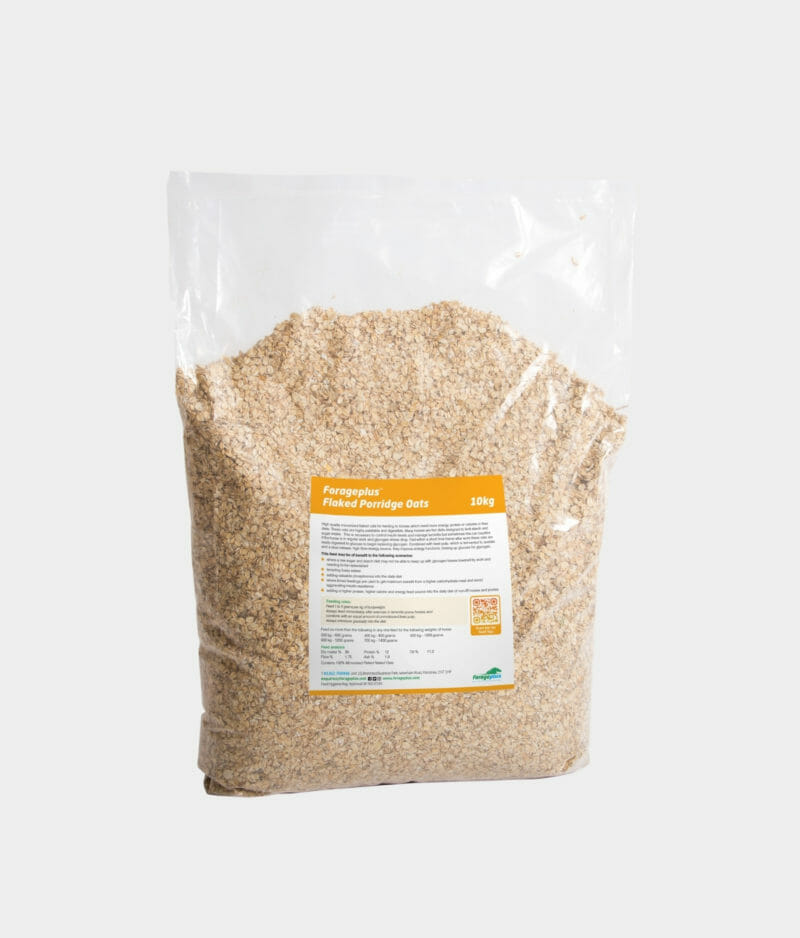
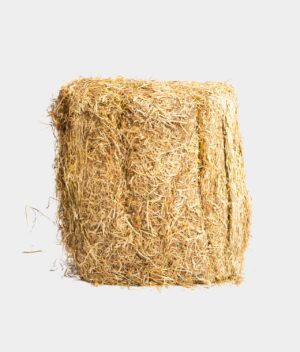
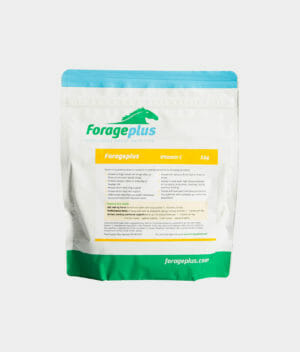
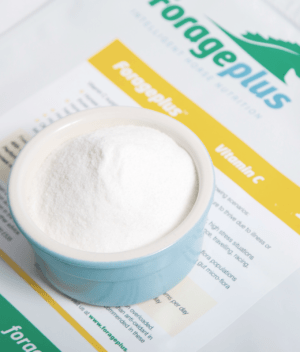
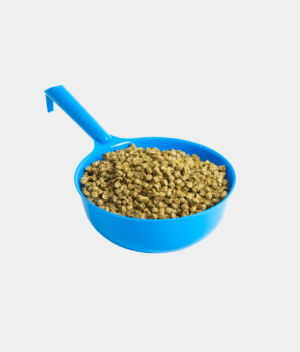
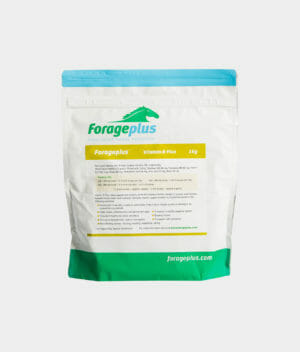
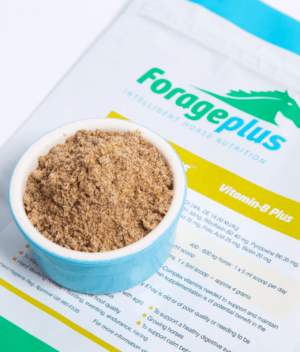
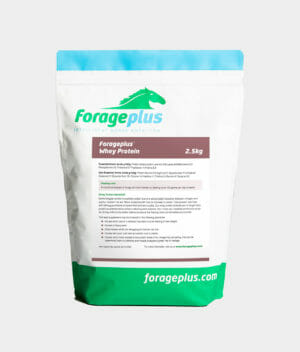
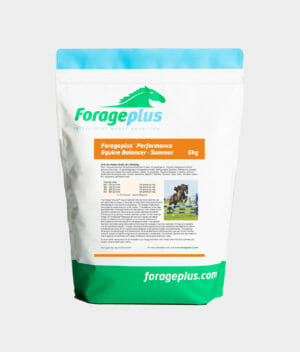
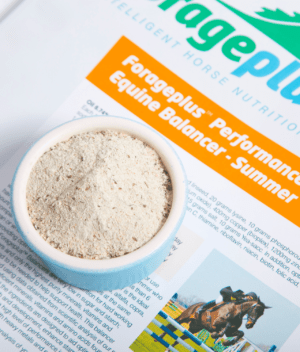
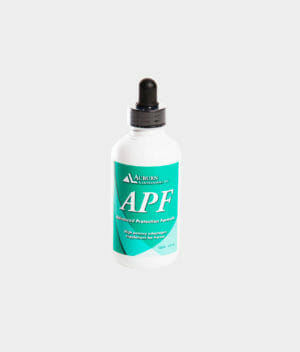
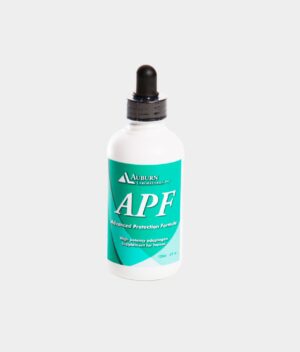
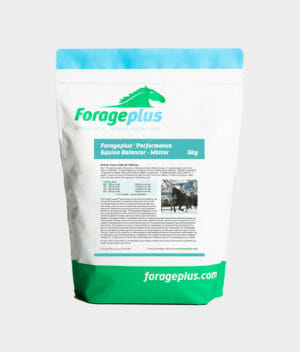
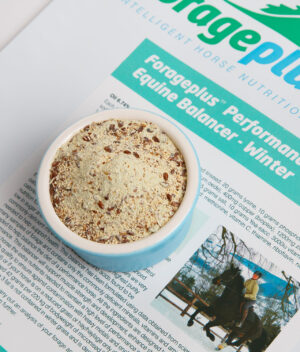

Debra Watts (verified owner) –
Have been feeding these oats through the winter to my elderly horse for extra calories and protein. They smell delicious and have helped to keep her in good condition! We’re not feeding for extra energy at age 32, but we’re not hanging about when we go on our in hand walks!
Leonora (verified owner) –
In my opinion, Forage Plus offers the most knowledgeable, objective, helpful feed advice available.
I’m amazed at the difference the addition of 40 g of Flaked Oats, with same amount of Essential Amino Acids and 50 g of Pea Protein, have made to my pony’s well-being. I was already using the Forage Plus Winter Hoof and Skin Health Balancer, mixed with soaked/rinsed Speedibeet to supplement his forage-based diet. My pony has been on a strict diet and has lost a lot of weight, which is great, but I noticed that he would run out of steam quite quickly during exercise. I contacted Forage Plus for advice and they said this is not uncommon in equines on strict dietary control and recommended the addition of Pea Protein, Flaked Oats and Essential Amino Acids. I noticed an improvement within a couple of days and I’m delighted.
Kelly Elliott –
Always feed oats in this form after xc during the eventing season, it replaces their glycogen stores perfectly and is easily digested in this form. Also a good price for the size of bag.